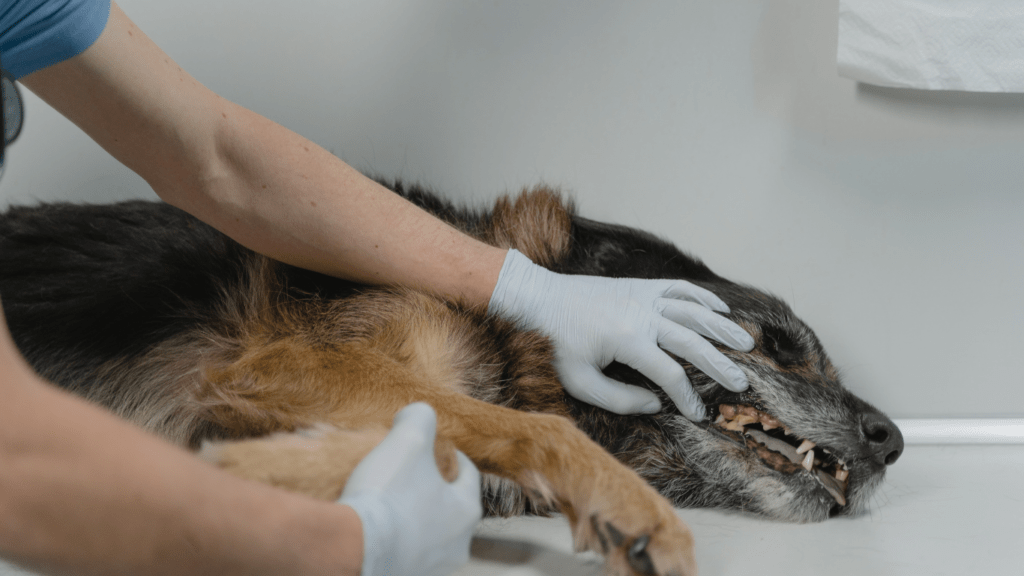As a pet owner, ensuring the well-being of our furry companions is a top priority. In my years of experience, I’ve learned that proactive measures play a crucial role in keeping our pets healthy and happy. That’s why I’m excited to share some valuable preventative care tips that can make a significant difference in your pet’s overall health.
From regular veterinary check-ups to a balanced diet and exercise routine, there are simple yet effective ways to promote your pet’s well-being. In this article, I’ll delve into practical strategies that can help prevent common health issues and ensure a higher quality of life for your beloved pet. By incorporating these preventative care tips into your pet care routine, you can enjoy more precious moments with your furry friend for years to come.
Importance of Preventative Care for Pets
Understanding the significance of preventative care for pets is essential for ensuring their overall well-being. As a pet owner, I prioritize proactive measures to keep my furry friend healthy and happy. Regular veterinary check-ups, a balanced diet, and proper exercise are foundational components of preventative care that contribute significantly to the vitality of pets.
Routine veterinary visits are crucial for early detection of any potential health issues in pets. By scheduling regular check-ups, I can monitor my pet’s health status and address any concerns promptly. Vaccinations, preventive medications, and screenings are essential aspects of these visits that help prevent diseases and ensure my pet’s long-term health.
A balanced diet tailored to my pet’s specific nutritional needs is vital for their overall health. I ensure that my pet receives high-quality food appropriate for their age, size, and breed. Nutritious meals help maintain optimal weight, strengthen the immune system, and support healthy organ function, promoting a vibrant and active lifestyle.
Exercise plays a crucial role in keeping pets both physically and mentally healthy. I engage my pet in regular physical activities such as walks, playtime, and interactive games to prevent obesity, improve cardiovascular health, and stimulate their cognitive abilities. Physical exercise also strengthens the bond between me and my pet, fostering a happy and fulfilling companionship.
By embracing preventative care practices, I can provide my pet with a fulfilling and enriched life while minimizing the risk of common health issues. Prioritizing preventative care empowers pet owners to give their beloved companions the best quality of life possible, fostering a strong and lasting relationship built on health, happiness, and shared moments of joy.
Common Preventative Care Tips
When it comes to keeping your pet healthy, there are key preventative care measures that can ensure their well-being and happiness. By following these tips, you can actively contribute to your pet’s overall health and quality of life.
Regular Veterinary Check-ups
I prioritize regular veterinary check-ups for my pet to catch any potential health issues early on. These visits help in monitoring my pet’s health status, receiving necessary vaccinations, and addressing any concerns promptly. It’s essential to schedule these check-ups at least once a year, or as recommended by my veterinarian based on my pet’s individual needs.
Balanced Nutrition
Maintaining a balanced diet is crucial for my pet’s health and longevity. I ensure that my pet receives high-quality food that meets their nutritional requirements. By providing a well-rounded diet, I help support my pet’s immune system, maintain a healthy weight, and promote overall well-being. Consulting with a veterinarian can help determine the appropriate diet for my pet’s specific needs.
Proper Exercise
Exercise plays a vital role in keeping my pet physically and mentally healthy. I engage in regular playtime, walks, or activities that cater to my pet’s exercise needs. By incorporating exercise into our daily routine, I help prevent obesity, improve cardiovascular health, and enhance my pet’s cognitive functions. Tailoring the exercise regimen to my pet’s age, breed, and health condition ensures a safe and enjoyable experience for both of us.
Preventative Care for Specific Pet Types
Tailoring preventative care to specific pet types is crucial for their overall health and well-being. Here are some specialized care tips for different pets:
- Dogs:
Dogs require regular exercise, a nutritious diet, and preventive veterinary care to stay healthy. Ensure your canine companion gets plenty of physical activity suitable for their breed and age. Regular grooming, dental care, and training are also essential for their overall well-being. - Cats:
Cats are independent creatures but still need preventive care. Provide a balanced diet appropriate for their age and health needs. Regular veterinary check-ups, dental care, and mental stimulation through interactive toys are vital for their health and happiness. - Birds:
Birds need a diverse diet consisting of seeds, fruits, vegetables, and occasional protein sources like eggs. Regular grooming, including nail trimming and wing clipping, is necessary. Also, ensure they have a spacious cage with stimulating toys and perches to maintain their mental and physical health. - Small Mammals (Rabbits, Guinea Pigs, Hamsters):
These pets need a diet rich in hay, fresh vegetables, and fortified pellets to ensure proper nutrition. Regular veterinary visits are crucial for early detection of health issues. Provide them with a clean and spacious habitat with opportunities for exercise and mental stimulation. - Reptiles:
Reptiles require specific environmental conditions to thrive. Ensure their habitat has the appropriate temperature, humidity, and lighting. A well-balanced diet suited to their species is essential for their health. Regular veterinary check-ups are necessary to monitor their well-being.
Tailoring preventative care to each pet type’s specific needs ensures they lead long, happy, and healthy lives. Regular veterinary consultations, appropriate nutrition, and mental and physical stimulation are key to maintaining their overall well-being.




